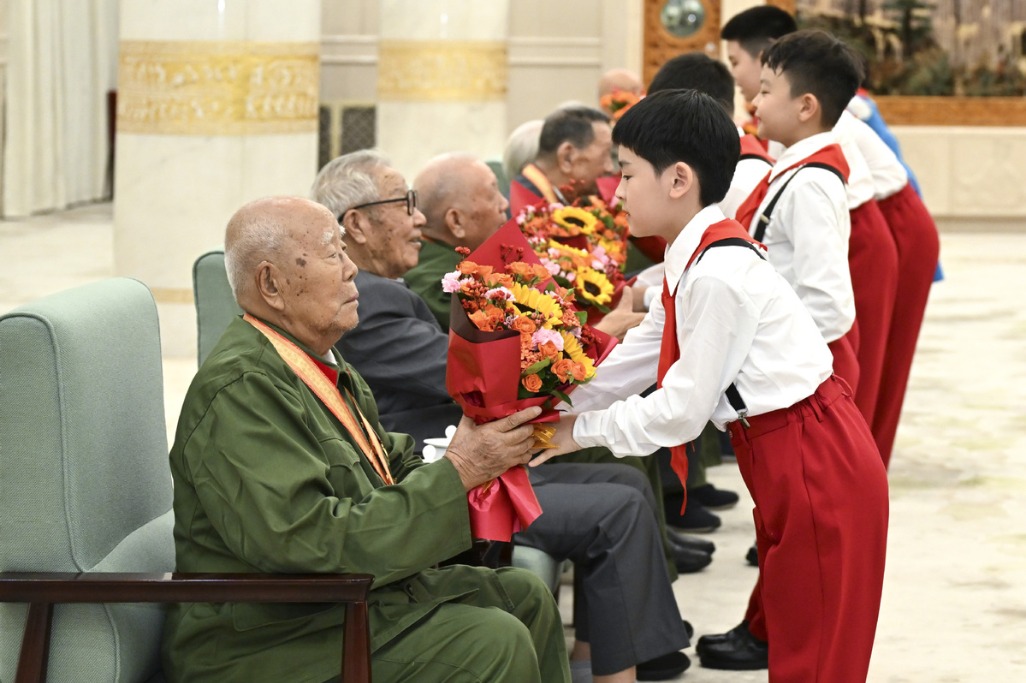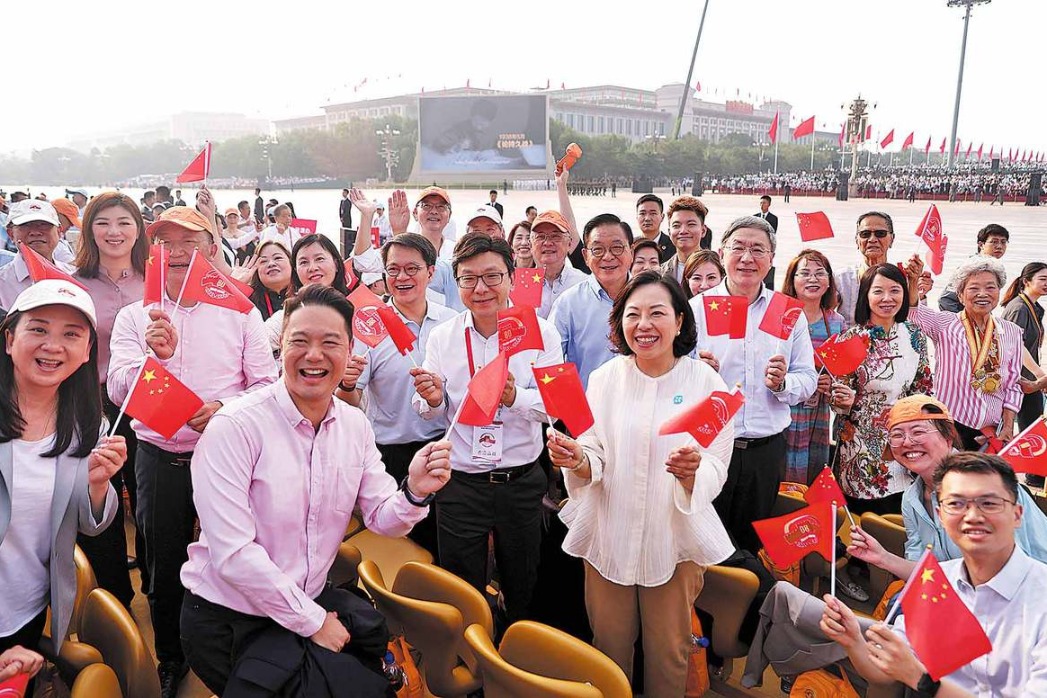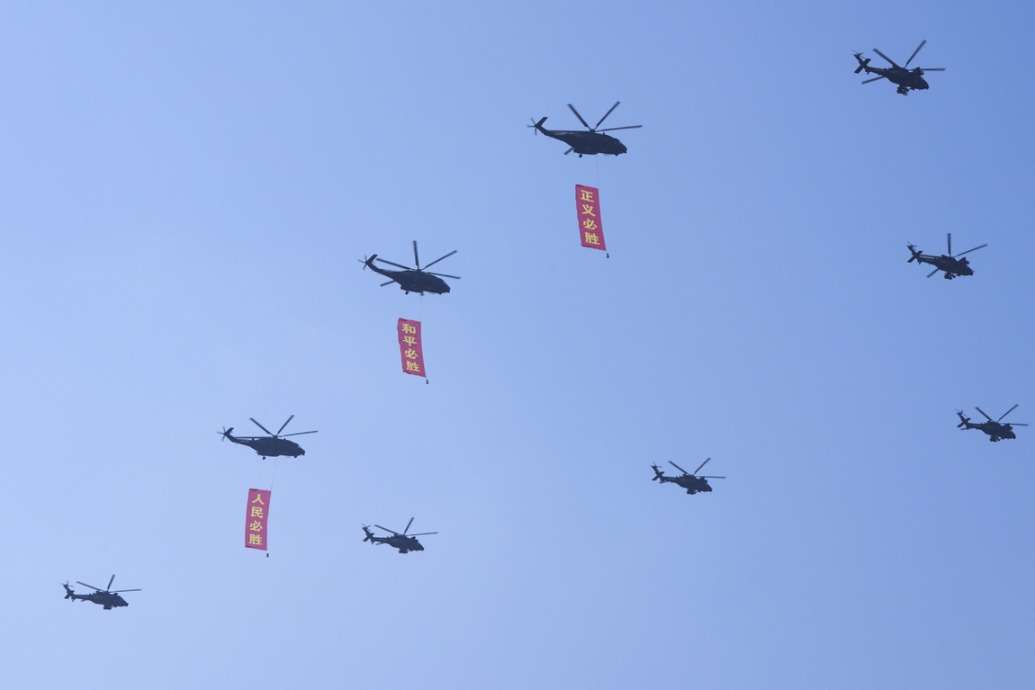Novelist captures shared culture of China's old alleyway communities

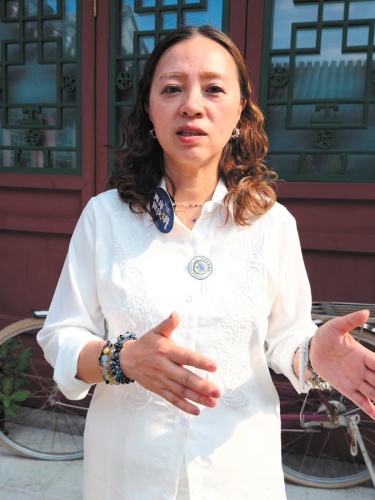
From Taiwan's juancun to Beijing's hutong, the essence of human warmth in the alleyways has always been a wellspring of inspiration for Taiwan novelist and curator Bi Yi-fan, also known as Nana Bee.
Born in 1970 in a juancun in Taipei, a community established to accommodate soldiers and their families from the Chinese mainland after the Chinese Kuomintang's retreat to Taiwan in 1949, Bi's upbringing was steeped in a diverse and nostalgic culture brought by residents from various mainland provinces.
Her family roots also trace back to the mainland, with her father hailing from Jiangsu province, and moving to Taiwan after his father sacrificed his life during the Chinese People's War of Resistance Against Japanese Aggression (1931-45). In Taiwan, Bi's father served in the military, and later he married her mother in Taiwan who comes from Zhejiang province. Bi spent her childhood with her maternal grandparents in the juancun in Taipei.
In these alleys, every household left its doors open, fostering strong bonds among neighbors. The sense of community was palpable, with families coming together to share meals and support one another, especially showering the youngest, Bi, with love and care.
The community was also rich in traditional culture, Bi said, recalling a renowned Peking Opera actor who lived across from her home. Her childhood was filled with weekends spent watching Beijing opera with her father, and she even participated in performances during her school years.
Despite never having visited the mainland, Bi's elders regaled her with stories of their hometowns, bridging the geographical distance through shared experiences.
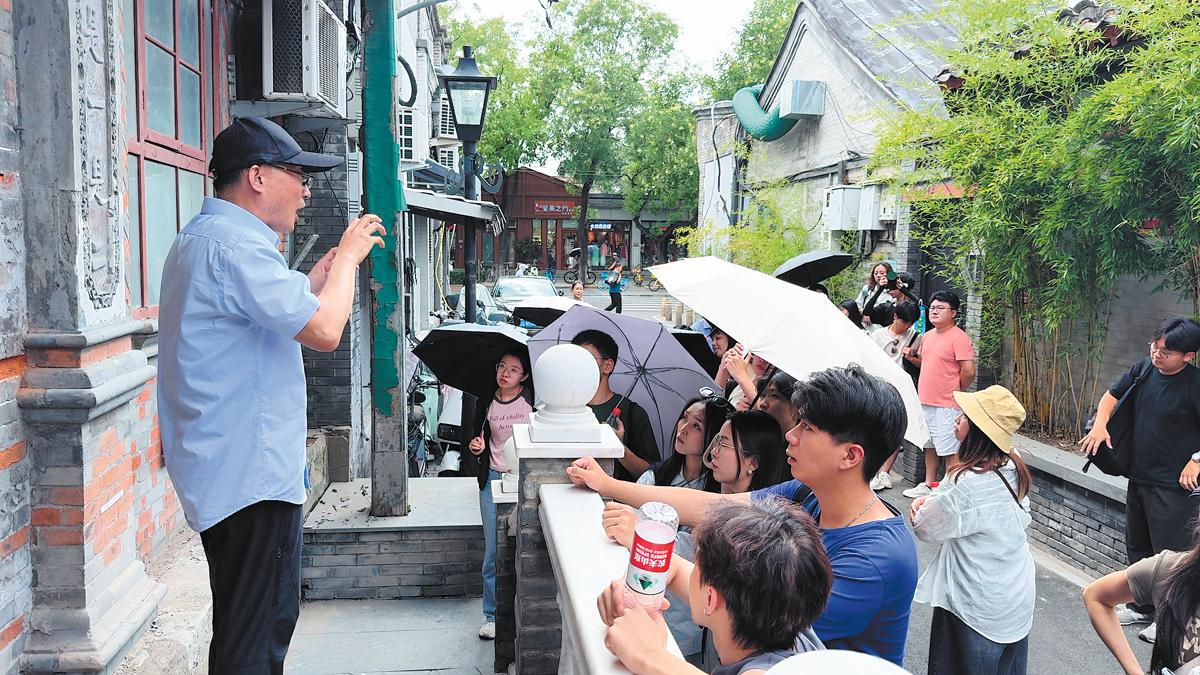
"My father broke down in tears when he received a letter from his mother sent from Jiangsu," Bi recalled. Her father finally returned to the mainland after his mother had passed away.
The urbanization of Taiwan in the 1980s led to the dismantling of the military dependents' community, transforming one-story houses into towering apartment complexes and dispersing neighbors far and wide.
Bi's childhood, nurtured by stories, greatly influenced her writing, with many of her novels featuring protagonists resembling the women in the military dependents' community.
She decided to chronicle the tales of the community in her memory, capturing the essence of daily life, the Beijing Opera actor across the street, and the delicacies from the elderly neighbors who may have passed away, with hopes of compiling these stories into a book in the future.
Her passion for traditional culture drew her to live in Beijing. In the hutong of Beijing, she found the feeling of her childhood military dependents' village, with every alleyway teeming with families.
In July, Bi organized a hutong-themed art exhibition in downtown Beijing, created by twelve Taiwan art students and their counterparts from the mainland after a three-day in-depth exploration of the alleyways.
During their journey, students from both sides rode bicycles together, learning each other's dialects and sharing local delicacies. They were warmly welcomed by the hutong residents who invited them into their courtyards to have a look around.
Bi said, "I hope students can experience the precious warm relationship between people in such small lanes and keep them in their creations."
Participant Tseng Chun-ning from Taiwan created a painting featuring several lively orange fish swimming through the gray tiled roofs and brick walls of a hutong, symbolizing the young students exploring the alleyways.
Chang Chen-yen juxtaposed modern high-rise buildings with traditional hutong houses in an ink painting, creating a sense of coexistence between history and the present.
"I believe that Chinese traditional culture is ever-evolving and possesses a vitality for ongoing innovation," he said.
Peng Yi-chen, a participant studying design, incorporated the intricate details of roof bricks and tiles in hutong buildings into the packaging of Beijing local snacks, hoping to allow people to experience the historical texture of the city while enjoying local food.
Zhang Wanbo and Fu Yingzhi contributed to this story.
- Taiwan Democratic Self-Government League opens exhibition on Taiwan's recovery in Beijing
- China to launch three-year campaign to strengthen bird protection
- Space conference in China unveils future trends of deep space economy
- Chinese researchers identify a key gene to combat 'cancer' in cruciferous crops
- Top political advisor meets Taiwan representatives joining in V-Day commemorations
- Xi sends congratulatory letter to World Smart Industry Expo 2025

















